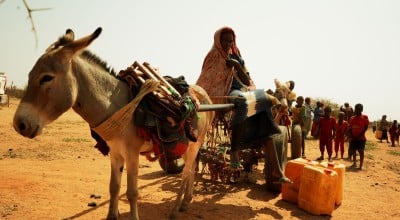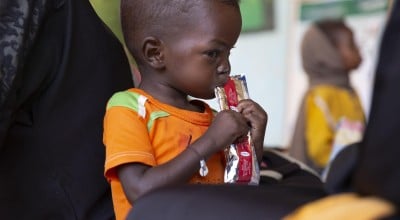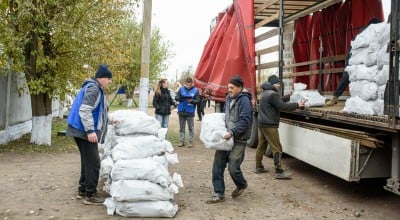
Read our 2024 annual report

Knowledge Hub
Democratic Republic of Congo facing one of the world’s worst humanitarian crises in 2018
Ireland’s largest humanitarian aid agency is highlighting the worsening conditions in DRC, where 13 million people need aid, including 4.3 million made homeless due to conflict and 7.7 million suffering from acute hunger.
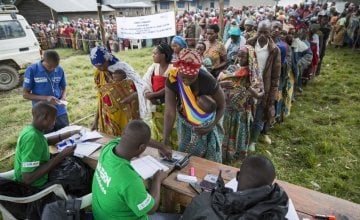
The Democratic Republic of Congo is facing one of the world’s most urgent humanitarian crises this year, Concern Worldwide has today warned.
Ireland’s largest humanitarian aid agency is highlighting the worsening conditions in DRC, where 13 million people need aid, including 4.3 million made homeless due to conflict and 7.7 million suffering from acute hunger.
Shocking figures from the United Nations Office for the Coordination of Humanitarian Affairs (UNOCHA) also reveal that there are two million children in DRC at risk of severe acute malnutrition – a fatal condition if they are untreated.
“The suffering is on a massive scale and is worsening by the day,” said Concern’s Regional Director for Central Africa, Reka Sztopa.
“We are calling for unimpeded access to provide lifesaving assistance, as well as increased levels of funding.”
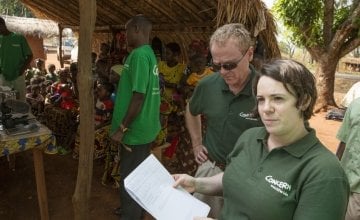
Concern, which has worked in DRC for over 20 years, said aid has been “extremely slow” to arrive for the 13 million people currently in need, despite a decision by the UN to upgrade DRC’s status to a Level 3 Emergency.
This means that it joins Yemen and Syria in being regarded as “the worst-of-the-worst of humanitarian crises”, with hundreds of thousands of people set to starve if vital intervention does not materialise.
Two per cent ($36.8 million) of the $1.68 billion in humanitarian funding that the UN has called for to aid DRC in 2018 has so far been received this year – which follows only 52 per cent in funding needs being met in 2017.
“Urgent aid is needed to help the millions of people who have been forced to flee their homes,” added Reka Sztopa.
“Just one in eight people who need food received aid last month. We cannot stand by and allow this to continue.”
Displacement in North Kivu is related to conflict between armed groups with many vying for control of land and resources.
Last month, it emerged following the publication of a report by the Internal Displacement Monitoring Centre, that an average of 5,500 people fled their homes in DRC every day in 2017 due to conflict.
Dublin man Mark Johnson is Concern’s Emergency Programme Manager in DRC and said that conflict is a constant threat to local communities.

“The impact of the conflict is very clear to see in DRC,” he explained.
“We were recently distributing aid when fighting broke out in a nearby town, forcing us to postpone our activities to ensure the safety of the affected communities and our staff that are supporting them. I woke up to the sound of gunfire in the distance and saw people walking around with weapons. The reality of day-to-day life can be very volatile for people.”
A lack of access to clean water and sanitation has also sparked a deadly outbreak of cholera.
Over 1,200 lives have already been claimed by the disease in what has been described as the “worst outbreak in more than 20 years”.
Concern is fighting the spread of the disease through an emergency programme in Tanganyika and Haut Katanga provinces in southeast DRC, which is supporting more than 61,000 people with access to safe water, sanitation and essential items to improve hygiene.
For more information or interview requests, please contact Kevin Jenkinson on 086 358 2886 or kevin.jenkinson@concern.net.

Other ways to help
Corporate support
Is your company interested in working together for a common cause?
Fundraise for Concern
From mountain trekking to marathon running, cake sales to table quizzes, there are lots of ways you can support our work.
Buy a gift
With an extensive range of alternative gifts, we have something to suit everybody.
Leave a gift in your will
Leave the world a better place with a life-changing legacy.
Volunteer with Concern
The lots of ways to get involved with our work as a volunteer
School fundraising
Without the generous support from schools, we wouldn't be able to do the work that we do.


